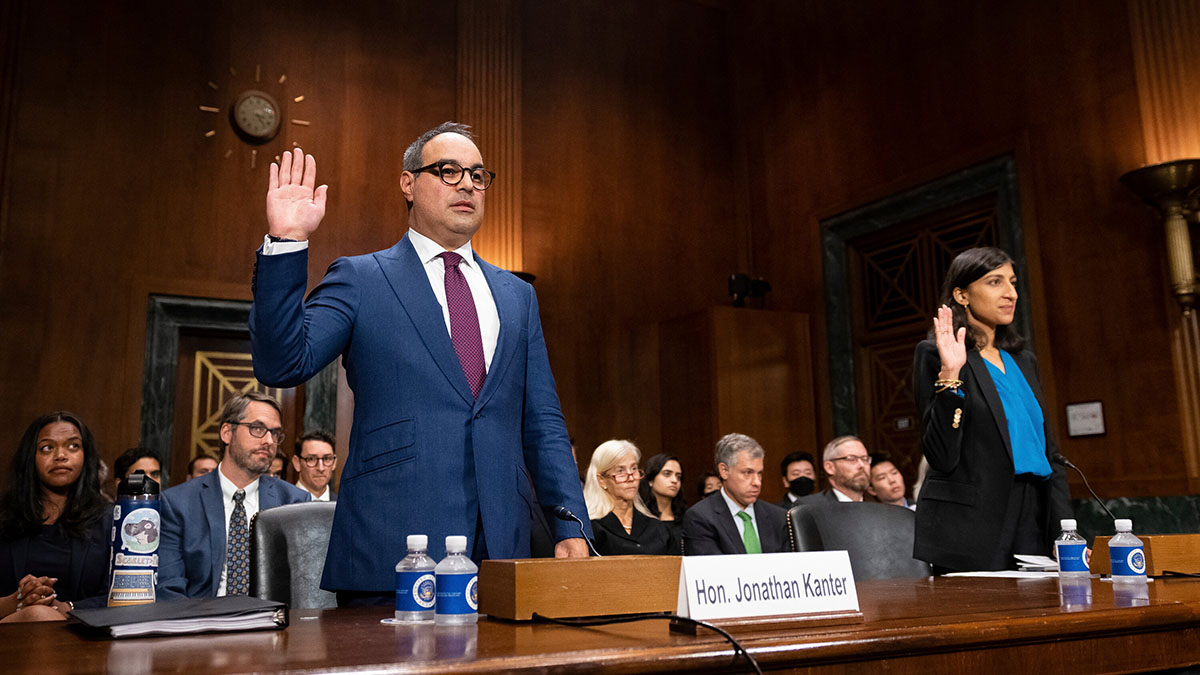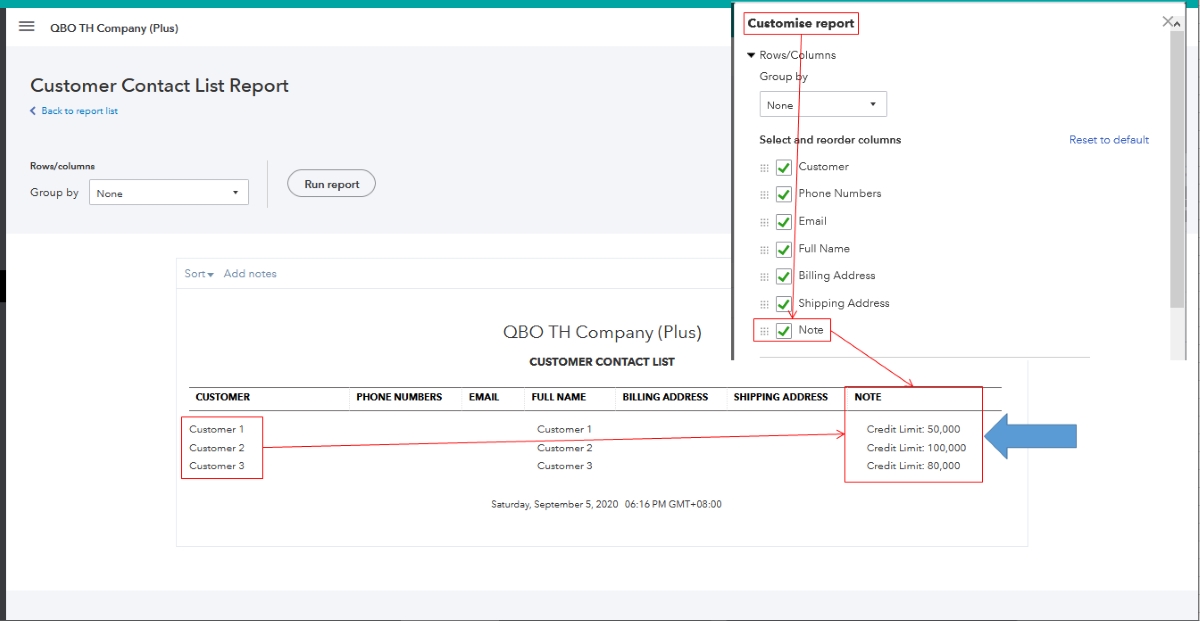Home>Finance>Why Is The Government Involved In Mergers And Acquisitions?


Finance
Why Is The Government Involved In Mergers And Acquisitions?
Published: February 24, 2024
Discover the role of government in mergers and acquisitions and its impact on the finance industry. Explore the regulations and policies governing these transactions.
(Many of the links in this article redirect to a specific reviewed product. Your purchase of these products through affiliate links helps to generate commission for LiveWell, at no extra cost. Learn more)
Table of Contents
Introduction
Introduction
Mergers and acquisitions (M&A) play a pivotal role in shaping the economic landscape, driving corporate growth, and influencing market dynamics. These strategic transactions involve the consolidation of companies through various means such as mergers, acquisitions, and takeovers. As such, they often attract the attention of government regulatory bodies due to their potential impact on competition, national security, and consumer welfare. This article delves into the multifaceted reasons why governments are involved in overseeing M&A activities, shedding light on the regulatory frameworks, economic considerations, and societal implications that underpin government intervention in these transactions.
The involvement of governments in M&A activities is multifaceted and is driven by a diverse range of factors, including the need to ensure fair competition, safeguard national interests, and protect consumer rights. By delving into the regulatory mechanisms, antitrust laws, national security concerns, economic impact, and consumer protection aspects, we can gain a comprehensive understanding of the intricate interplay between government oversight and M&A activities. This article aims to unravel the complexities surrounding government involvement in mergers and acquisitions, providing insights into the overarching reasons and implications of such regulatory scrutiny.
Regulation of Mergers and Acquisitions
Regulation of Mergers and Acquisitions
The regulation of mergers and acquisitions is a critical aspect of government involvement in corporate transactions. Governments enact and enforce regulations to ensure that M&A activities adhere to legal frameworks, promote fair competition, and safeguard the interests of various stakeholders. Regulatory bodies, such as the Securities and Exchange Commission (SEC) in the United States, oversee M&A transactions to uphold transparency, disclosure, and compliance with regulatory requirements. These regulations serve to maintain the integrity of the financial markets and protect investors from potential risks associated with M&A activities.
Furthermore, government oversight aims to prevent monopolistic practices and anti-competitive behaviors that could arise from unchecked M&A transactions. By scrutinizing proposed mergers and acquisitions, regulatory authorities assess the potential impact on market competition and consumer choice. Through this oversight, governments strive to maintain a level playing field for businesses, prevent the concentration of market power in the hands of a few dominant entities, and preserve the dynamism of the marketplace.
Moreover, the regulation of M&A activities extends to ensuring that corporate transactions comply with corporate governance standards and ethical business practices. By setting guidelines for due diligence, shareholder rights, and board responsibilities, governments seek to mitigate the risks of corporate misconduct and protect the interests of shareholders, employees, and other stakeholders involved in M&A transactions. This regulatory framework fosters transparency, accountability, and ethical conduct within the corporate sector, thereby reinforcing investor confidence and market stability.
Antitrust Laws
Antitrust laws form a cornerstone of government oversight in the realm of mergers and acquisitions, aiming to prevent anti-competitive practices and protect consumer welfare. These laws are designed to promote fair competition, prevent monopolistic behaviors, and ensure that M&A activities do not stifle innovation or limit consumer choices. Through antitrust regulations, governments seek to maintain a competitive marketplace where businesses operate on a level playing field, fostering innovation, efficiency, and consumer benefits.
Antitrust scrutiny of M&A transactions involves assessing the potential impact on market competition, pricing dynamics, and consumer access to goods and services. Regulatory bodies, such as the Department of Justice (DOJ) and the Federal Trade Commission (FTC) in the United States, evaluate proposed mergers and acquisitions to determine whether they may substantially lessen competition or harm consumer interests. This rigorous examination encompasses factors such as market concentration, barriers to entry, and the potential for anti-competitive conduct post-transaction.
Furthermore, antitrust laws aim to prevent the creation of dominant market players that could wield undue influence, control pricing, or limit innovation to the detriment of consumers. By enforcing these laws, governments strive to preserve a competitive marketplace that spurs economic growth, fosters innovation, and safeguards consumer welfare. In cases where M&A activities raise concerns regarding potential anti-competitive effects, regulatory authorities may require remedies, such as divestitures or behavioral commitments, to mitigate the adverse impact on competition and protect consumer interests.
Overall, antitrust laws serve as a vital mechanism for governments to uphold fair competition, prevent market distortions, and safeguard the economic interests of consumers and businesses. By enforcing these laws, regulatory authorities play a pivotal role in maintaining a vibrant and competitive marketplace that fosters innovation, efficiency, and consumer choice.
National Security Concerns
Amid the complexities of global business operations, government involvement in mergers and acquisitions extends to safeguarding national security interests. Certain M&A transactions, particularly those involving companies in strategic industries such as defense, technology, and critical infrastructure, can raise national security concerns. Governments are tasked with assessing the potential impact of such transactions on national security and may intervene to mitigate risks associated with foreign control or influence over sensitive assets.
Regulatory frameworks, such as the Committee on Foreign Investment in the United States (CFIUS), empower governments to review M&A transactions that could pose national security risks. Through this review process, regulatory authorities evaluate the implications of foreign ownership or control over entities that hold critical technologies, sensitive data, or infrastructure vital to national security. This proactive assessment aims to prevent vulnerabilities that could compromise national defense, technological leadership, or essential services.
Additionally, governments may impose conditions or restrictions on M&A transactions that raise national security concerns, such as requiring mitigation measures to safeguard sensitive technologies or imposing limits on foreign ownership in strategic industries. By addressing national security considerations, regulatory authorities seek to strike a balance between facilitating international investment and protecting core national security interests.
Furthermore, the evolving landscape of cybersecurity threats has underscored the importance of addressing national security implications in M&A activities. Governments are increasingly attuned to the potential cybersecurity risks associated with M&A transactions, especially those involving access to sensitive data, proprietary technologies, or critical infrastructure. As such, regulatory scrutiny encompasses an assessment of cybersecurity implications to prevent vulnerabilities that could compromise national security and economic resilience.
In essence, government involvement in M&A transactions with national security implications reflects a concerted effort to safeguard critical assets, technologies, and infrastructure vital to national defense and economic security. By addressing these concerns, regulatory authorities play a pivotal role in balancing the imperatives of global business integration with the imperative of protecting national security interests.
Economic Impact
Mergers and acquisitions exert a profound economic impact, prompting government involvement to assess the implications for market dynamics, economic growth, and industry competitiveness. These transactions can reshape industries, influence market structures, and drive significant changes in the allocation of resources. Consequently, governments scrutinize M&A activities to gauge their potential effects on employment, innovation, productivity, and overall economic welfare.
One key aspect of the economic impact of M&A transactions is their potential to drive industry consolidation, restructuring, and realignment. While such consolidation may yield operational efficiencies and synergies, it can also raise concerns about market concentration, barriers to entry, and the potential for reduced competition. Regulatory authorities evaluate these impacts to ensure that M&A transactions do not unduly distort market dynamics or impede the entry of new competitors, thereby safeguarding the benefits of competitive markets.
Moreover, government oversight of M&A activities encompasses an assessment of their implications for employment and labor markets. Large-scale mergers and acquisitions can lead to workforce restructuring, relocations, and changes in employment practices. Regulatory bodies may scrutinize these impacts to assess potential job displacement, labor market effects, and the overall welfare of employees affected by corporate transactions. By considering the socioeconomic implications, governments aim to mitigate adverse effects on workers and communities while fostering inclusive economic growth.
Furthermore, the economic impact of M&A activities extends to their potential effects on innovation, research and development (R&D), and technological progress. Governments are attentive to the role of M&A transactions in shaping innovation ecosystems, intellectual property rights, and the diffusion of technological advancements. Regulatory scrutiny seeks to ensure that M&A activities do not stifle innovation, limit R&D investments, or impede the dissemination of technological breakthroughs that drive economic progress and societal advancement.
In essence, government involvement in overseeing the economic impact of M&A transactions reflects a commitment to promoting competitive markets, fostering inclusive economic growth, and safeguarding the welfare of workers and innovators. By assessing the multifaceted economic implications of these transactions, regulatory authorities strive to balance the imperatives of corporate growth and industry dynamism with the broader goals of economic resilience and societal well-being.
Consumer Protection
Government involvement in mergers and acquisitions encompasses a crucial focus on consumer protection, aiming to safeguard consumer interests, promote fair pricing, and ensure the availability of diverse choices in the marketplace. Mergers and acquisitions have the potential to significantly impact consumers, influencing product availability, pricing dynamics, and the quality of goods and services. Regulatory scrutiny of these transactions is driven by the imperative to prevent anti-competitive behaviors, mitigate adverse consumer impacts, and uphold consumer rights.
One key aspect of consumer protection in the context of M&A activities is the assessment of potential impacts on pricing and consumer access to essential goods and services. Regulatory bodies analyze proposed mergers and acquisitions to evaluate the potential for price increases, reduced product diversity, or limitations on consumer choices. By addressing these concerns, governments seek to maintain competitive markets that offer consumers a wide array of options at fair prices, thereby fostering consumer welfare and economic equity.
Moreover, government oversight of M&A transactions extends to the preservation of product quality, safety standards, and the protection of consumer rights. Regulatory authorities assess the implications of corporate transactions on product safety, labeling practices, and adherence to consumer protection regulations. This scrutiny aims to ensure that M&A activities do not compromise product quality or dilute consumer protections, thereby upholding the integrity of goods and services available to consumers.
Furthermore, consumer protection considerations encompass the potential effects of M&A transactions on customer service, warranty provisions, and the overall consumer experience. Governments seek to mitigate adverse impacts on customer service levels, post-transaction support, and the fulfillment of warranties and guarantees. By addressing these concerns, regulatory bodies strive to uphold consumer confidence, trust, and satisfaction in the wake of corporate transactions.
In essence, government involvement in overseeing consumer protection in the context of mergers and acquisitions underscores a commitment to preserving competitive markets, promoting consumer welfare, and safeguarding the rights and interests of individuals and households. By addressing the multifaceted implications of M&A activities on consumers, regulatory authorities play a pivotal role in fostering market environments that prioritize fairness, choice, and consumer empowerment.
Conclusion
The multifaceted involvement of governments in overseeing mergers and acquisitions reflects a commitment to balancing corporate growth imperatives with broader societal interests. Through regulatory frameworks, antitrust laws, national security considerations, economic assessments, and consumer protection measures, governments strive to ensure that M&A activities adhere to legal and ethical standards, promote fair competition, and safeguard the welfare of consumers and the broader economy.
By regulating M&A transactions, governments aim to prevent anti-competitive behaviors, market distortions, and adverse consumer impacts. The enforcement of antitrust laws serves to maintain competitive markets, prevent monopolistic practices, and safeguard consumer welfare. Moreover, national security concerns prompt governments to assess the potential risks associated with foreign control over critical assets, technologies, and infrastructure, thereby balancing international investment with the imperative of safeguarding national interests.
Furthermore, the economic impact of M&A activities is subject to government scrutiny, with a focus on preserving market competition, fostering innovation, and safeguarding the welfare of workers and communities affected by corporate transactions. The assessment of consumer protection implications underscores a commitment to ensuring fair pricing, product diversity, and consumer rights in the wake of M&A activities.
In conclusion, government involvement in mergers and acquisitions is driven by a comprehensive mandate to uphold legal and ethical standards, promote fair competition, and safeguard the broader interests of society. By addressing the regulatory, economic, national security, and consumer protection dimensions of M&A activities, regulatory authorities play a pivotal role in fostering market environments that prioritize fairness, innovation, consumer welfare, and national security, thereby contributing to a balanced and resilient economic landscape.














